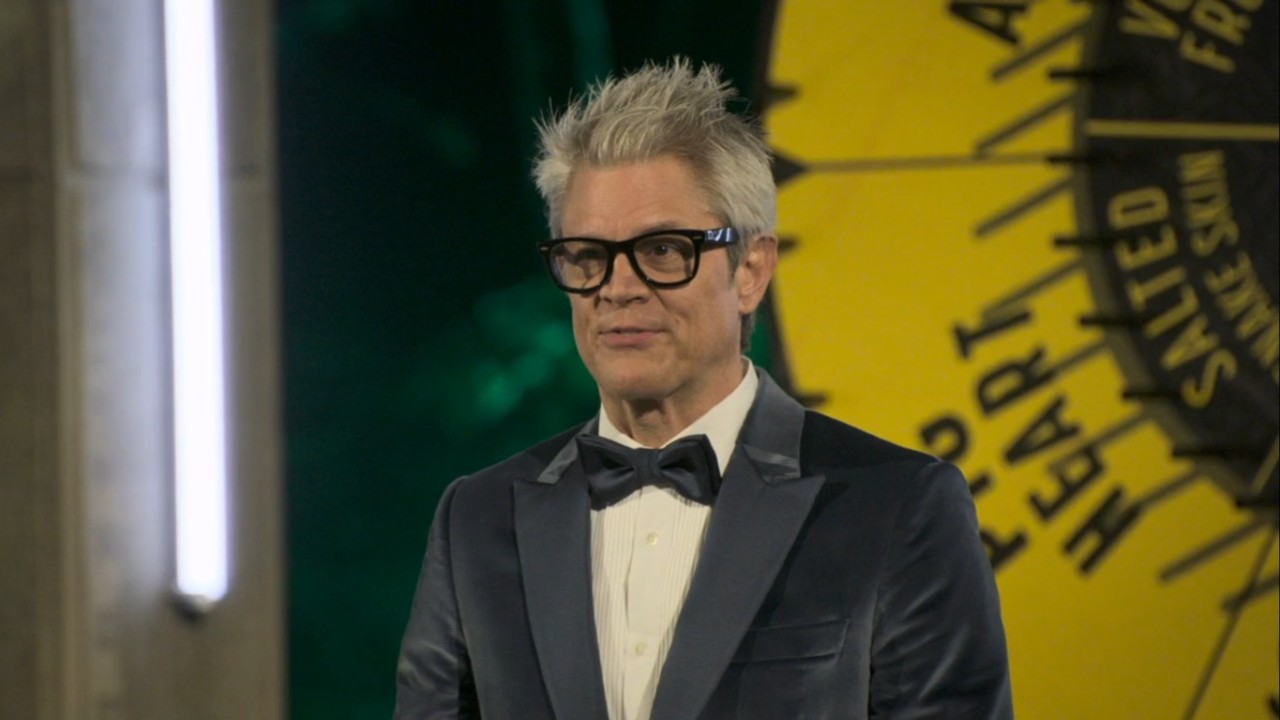Thor: Love And Thunder End Credits Scenes Explained: An Exciting Hello And A Sad Goodbye Create A Lot Of Emotions
Spoilers inside!
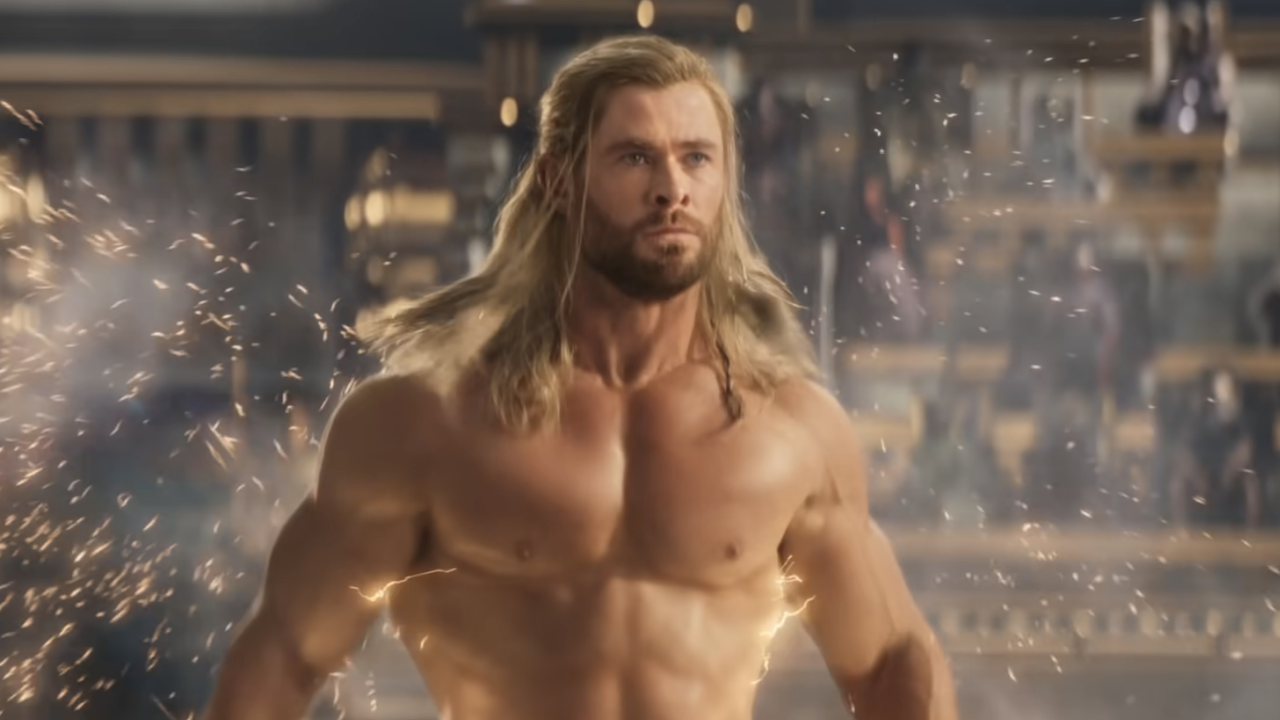
SPOILER WARNING: The following feature contains major spoilers for Thor: Love And Thunder. If you have not yet seen the film, continue at your own risk!
At this stage in the game, Marvel movies are running like clockwork, and as such there are expectations that have arisen. We expect them to arrive in theaters every few months; we expect them to feature blockbuster spectacle, comedy, and heart; and we expect at least two extra scenes to be included in the middle and after the end credits. Taika Waititi’s Thor: Love And Thunder is the latest film to deliver on these promises – and that includes featuring a pair of excellent “extra” sequences that will get any Marvel Cinematic Universe fan excited for what’s coming to the big screen in the years ahead.
As we do whenever a new Marvel movie arrives in theaters, we’ve built this guide to take a look at the Thor: Love And Thunder end credits scenes – both examining what actually goes down in them, and what the implications are for the future of the franchise. To start, let’s briefly recap exactly what happens in these special codas:
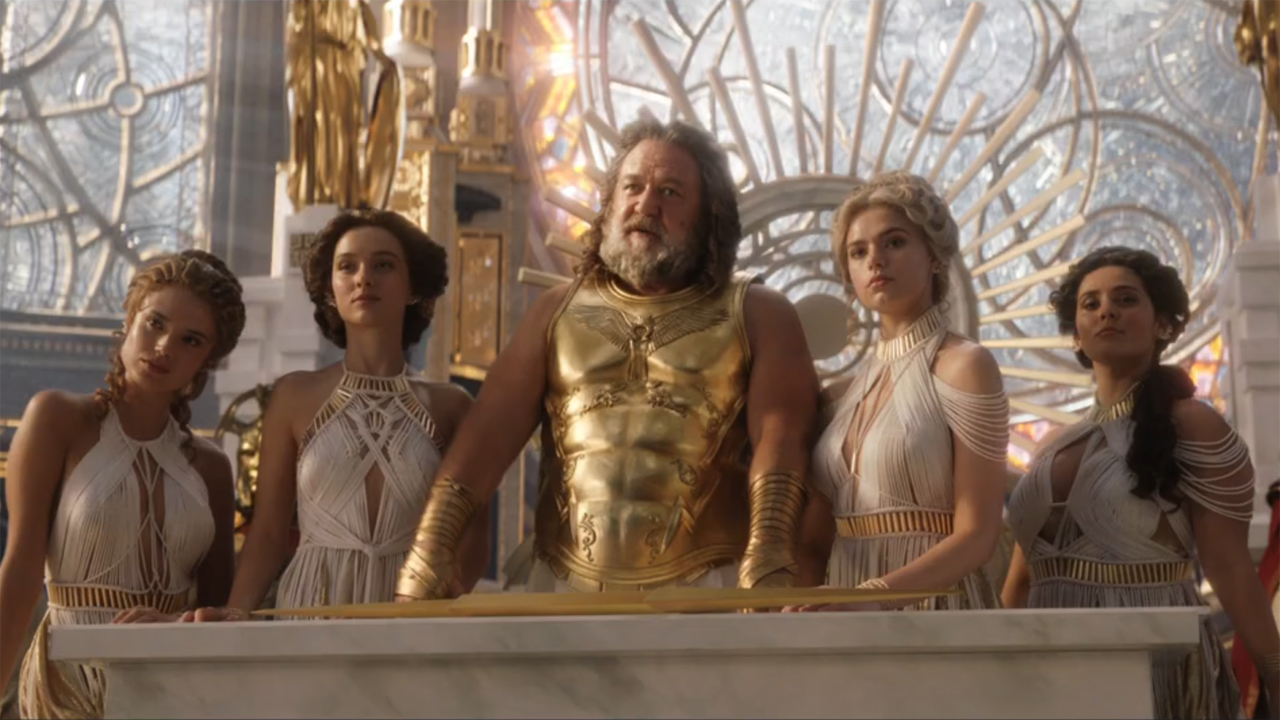
What Happens In The Thor: Love And Thunder End Credits Scenes
In the second act of Thor: Love And Thunder, it appears that Thor (Chris Hemsworth) has done the unthinkable and has actually killed the Olympian god Zeus (Russell Crowe) with his own thunderbolt… but, as one might expect, it takes a bit more than that to actually take down the king of the gods. Taking his own signature weapon through his chest cavity certainly doesn’t do his health any favors, but it’s revealed in the new Marvel movie’s mid-credits scene that he is still alive.
Lying down and being treated by his throng of handmaidens, Zeus is not only weakened, but also quite pissed off. He laments that Thor trying to kill him is a demonstration of extreme and untenable arrogance that is reflective of how people in the modern age worship heroes instead of gods. He notes that it is necessary to teach the universe about the still remaining power of his kind, and he designates his son to deliver the message. At the end of the scene, Hercules (Brett Goldstein) is revealed accepting his father’s given mission.
When Marvel Studios films use one end credits scene as a tease for future plot developments, it’s common that the second one is used to be more of a joke or callback gag – but that’s a mold broken by Thor: Love And Thunder. Rather than being a big laugh, it’s a somber goodbye.
After passing away at the end of the film, Jane Foster (Natalie Portman) finds herself in a foreign and fantastical environment where she is greeted by a friendly face: Heimdall (Idris Elba). The all-seeing, all-hearing Asgardian confirms that Jane has died, and thanks her for what she did to protect his son during the battle with Gorr The God Butcher (Christian Bale). It is in further expression of his appreciation that he welcomes her to the hall of the gods, Valhalla.
Your Daily Blend of Entertainment News
Both scenes are meaningful for what’s on the horizon for the Marvel Cinematic Universe – if not especially because of the final “Thor Will Return” message at the very end – so let’s break them down individually.
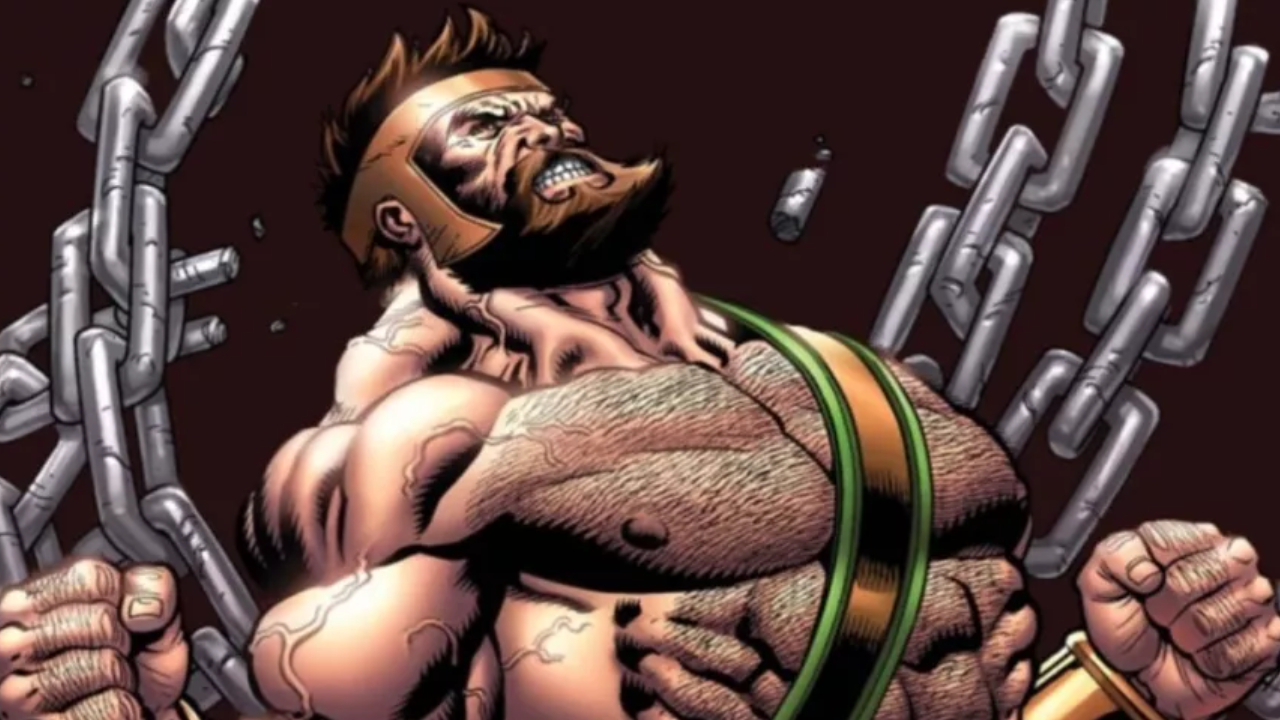
What The Introduction Of Hercules Means For Thor
Scheduled less than two weeks after the theatrical release of Thor: Love And Thunder is San Diego Comic-Con 2022, and it has been promised that Marvel Studios will have a presence at the event – which we all know means that there will be big announcements about new and upcoming projects. It’s very likely that among the news that is dropped will be details regarding the future of both Thor and Hercules… but because we here at CinemaBlend don’t employ any psychics or time travelers (yet!), we can’t say for certain what will specifically be announced.
Of course, that doesn’t mean that we can’t speculate based on the information that has been provided us!
The most obvious and logical path forward would be the development of what we will for now refer to as Thor 5. The God of Thunder already has more solo movies than any other single hero in the Marvel Cinematic Universe – with both Robert Downey Jr’s Iron Man dying and Chris Evans’ Captain America saying goodbye after their respective trilogies – but the most logical conclusion to draw from the Thor: Love And Thunder end credits is that more Thor is on the way, and his next big antagonist is already set up.
Based on what transpires in the mid-credits scene, it’s pretty easy to imagine that Thor 5 will center on Thor as he essentially goes to war with the other gods in the universe, with Zeus leading the charge and commanding Hercules as his primary weapon. Perhaps Thor vs. Hercules or Thor: War Of The Gods could be some title options?
If we’re working against Sherlockian logic, it’s also possible that Hercules will become a part of whatever macro plot plans that Marvel Studios surreptitiously has in the works. There has been speculation for a while now that the Marvel Cinematic Universe may be creating a big screen version of the Dark Avengers, and Hercules could perhaps fit the “Thor” slot alongside characters like Yelena Belova (obviously filling Black Widow’s position) and John Walker/US Agent (substituting Captain America).
Regardless of what happens, no matter what it looks like we can expect at least a limited antagonist run for Hercules in the near future of the MCU (though we can assume that he’ll eventually become a hero given his history as an Avenger in Marvel Comics).
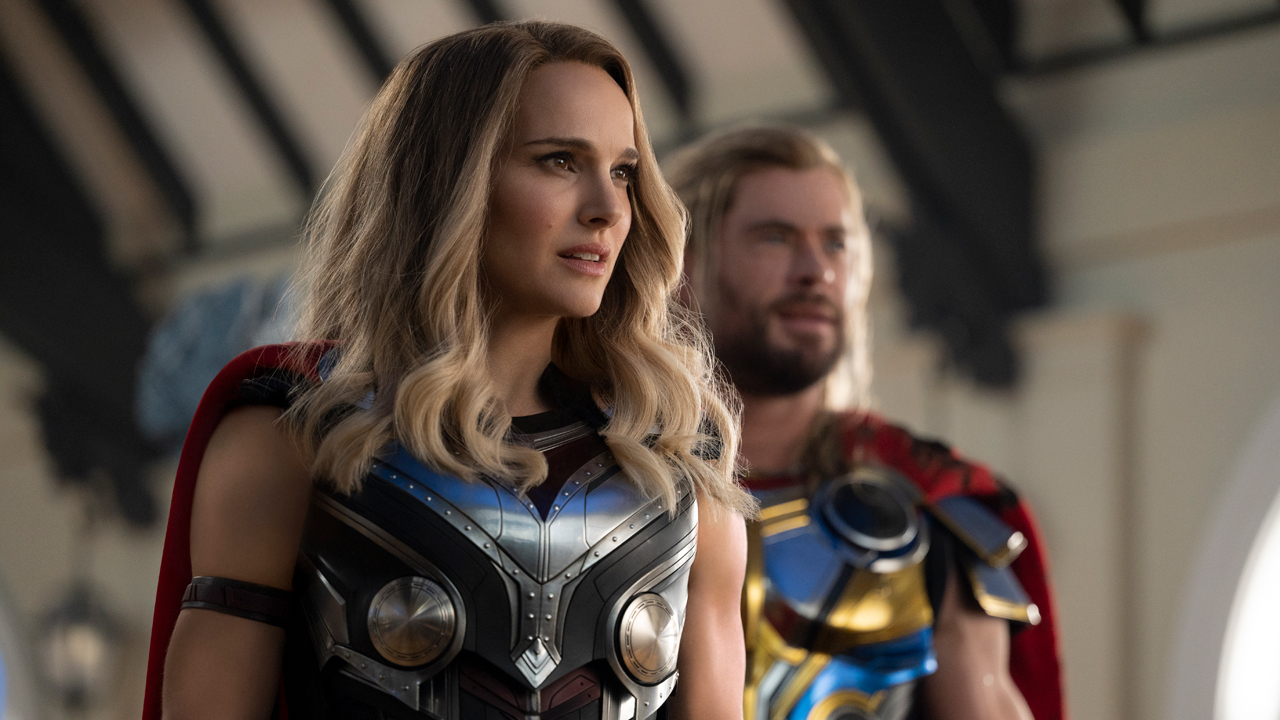
Are We Really Saying Goodbye To Jane Foster Forever?
Death is a complicated concept in comic books and superhero movies. Killing a prominent hero or villain adds stakes to storytelling and can influence big changes in the surviving characters with whom they most closely associate. At the same time, creators never want to deprive fans of stories featuring their favorite protagonists and antagonists, and so it is a common trope that nobody ever really dies and instead they are just put on a shelf temporarily to be “resurrected” later.
If you want to look at the Thor: Love And Thunder post-credits scene in a meta way, one could make the argument that the blockbuster is showing audiences that shelf and calling it Valhalla. Jane Foster is dead, her cancer and use of Mjolnir having proved to be a deadly combination… but she also technically exists in another form on a different plane of existence than the primary Marvel Cinematic Universe. It’s not out of bounds to think that future movies/Disney+ shows can see characters travel to Valhalla, and while doing so it could be an opportunity for audiences to see Jane Foster again.
Of course, the big danger is cheapening Jane Foster’s death. Her final scene with Thor is a powerful one, and part of that power comes from the knowledge that the God of Thunder will never again be able to be back together with the love of his life. The characters reuniting years down the road will have the effect of lessening that impact, no matter how it is orchestrated – so if it is done, it has to be done carefully, and right.
So will we see Jane Foster again? Probably not anytime soon, but nothing can be wholly ruled out.
Starring Chris Hemsworth, Natalie Portman, Christian Bale, Tessa Thompson, and Russell Crowe, Thor: Love And Thunder is now playing in theaters everywhere. To learn about everything that is on the way from the Marvel Cinematic Universe in the years ahead, our Upcoming Marvel Movies and Upcoming Marvel TV guides are just waiting for you to check them out.

Eric Eisenberg is the Assistant Managing Editor at CinemaBlend. After graduating Boston University and earning a bachelor’s degree in journalism, he took a part-time job as a staff writer for CinemaBlend, and after six months was offered the opportunity to move to Los Angeles and take on a newly created West Coast Editor position. Over a decade later, he's continuing to advance his interests and expertise. In addition to conducting filmmaker interviews and contributing to the news and feature content of the site, Eric also oversees the Movie Reviews section, writes the the weekend box office report (published Sundays), and is the site's resident Stephen King expert. He has two King-related columns.
